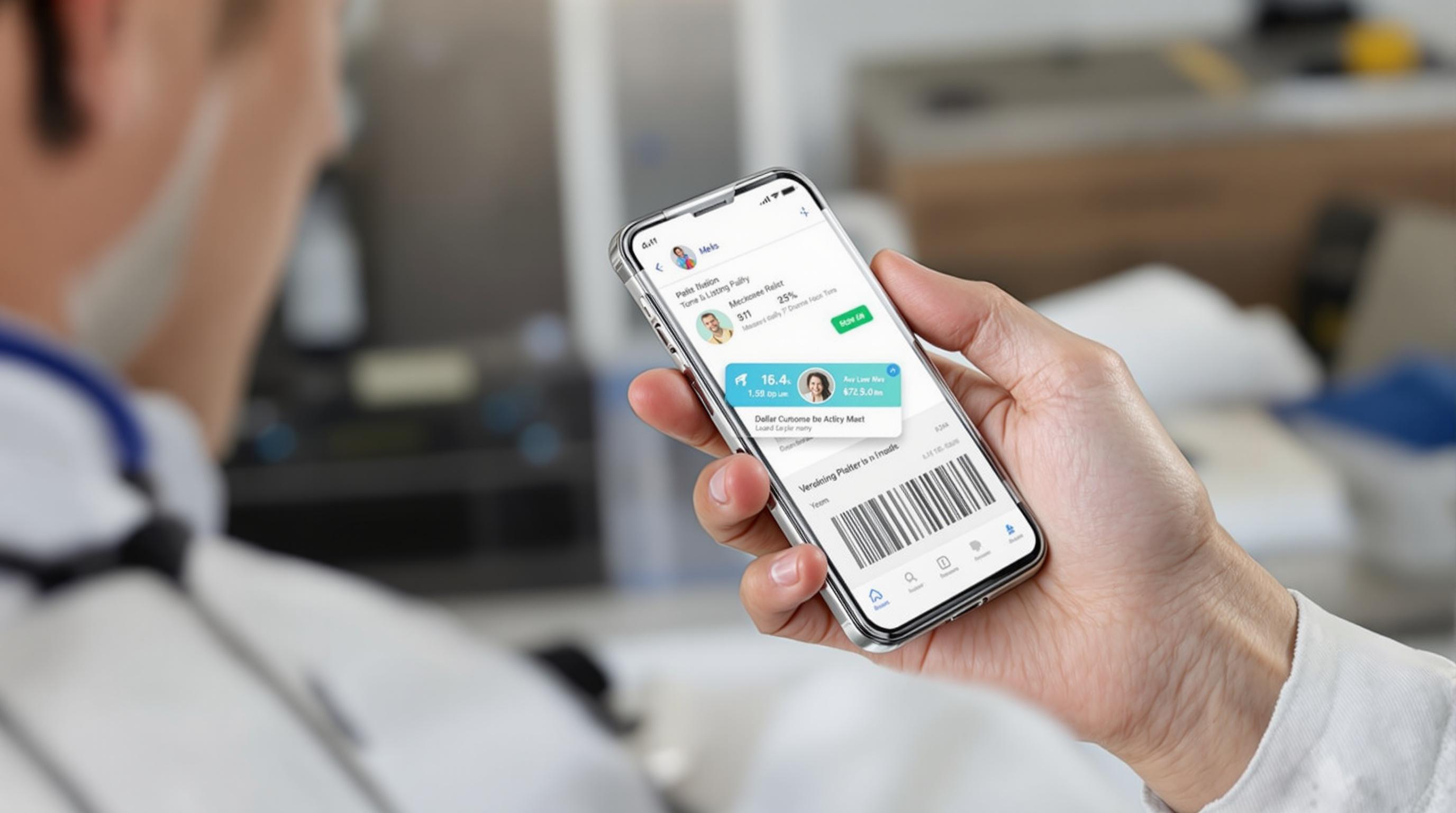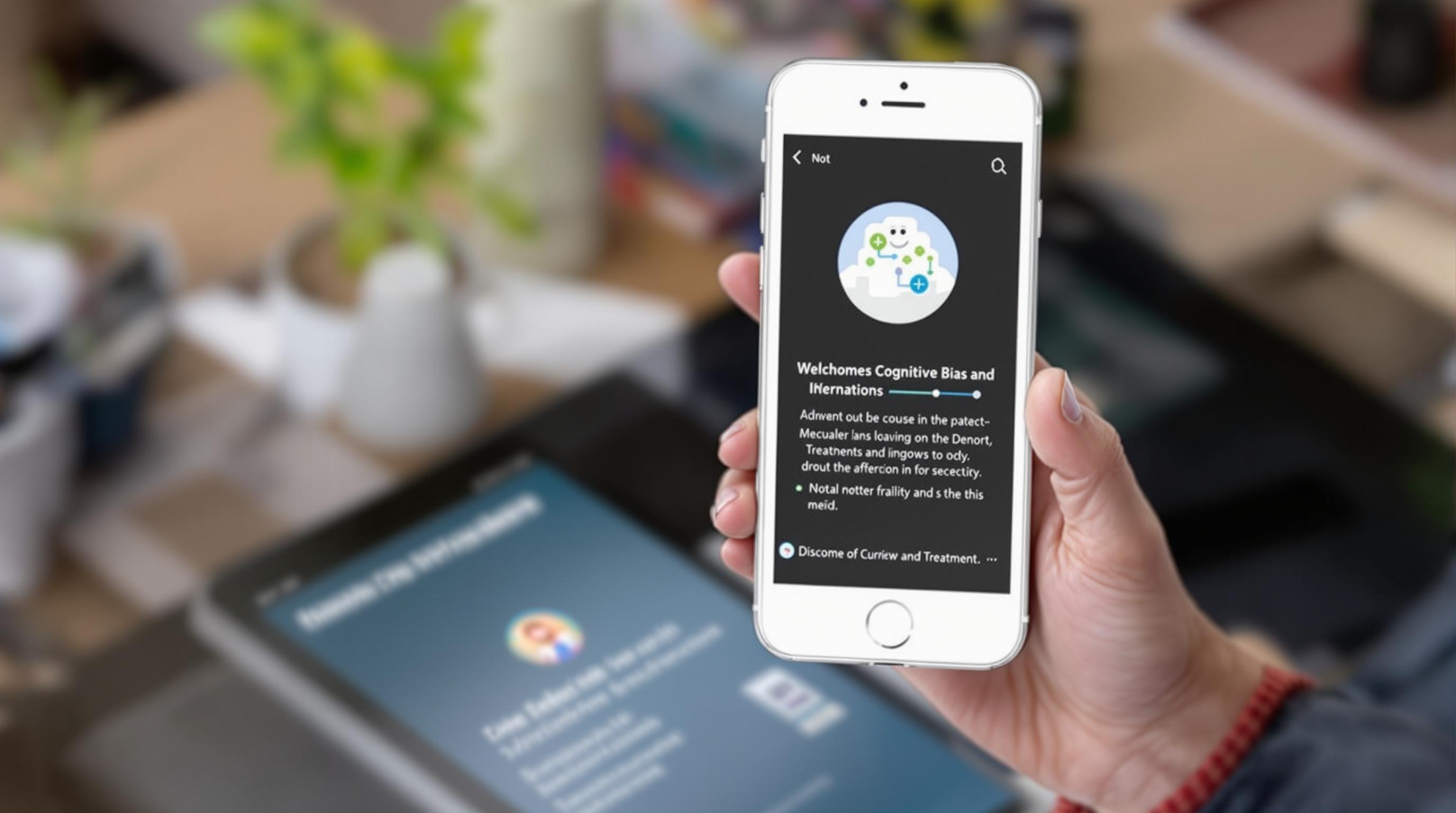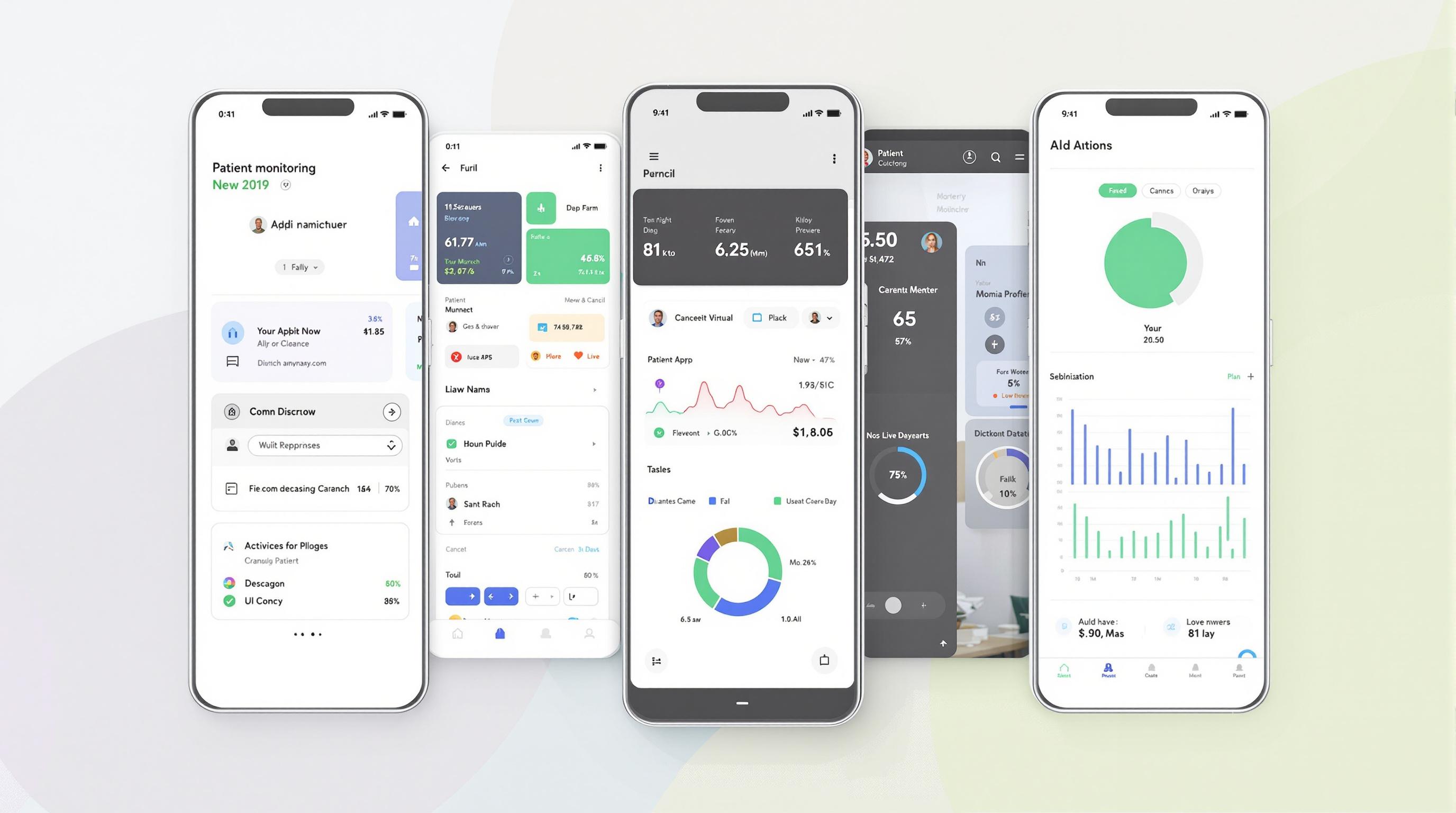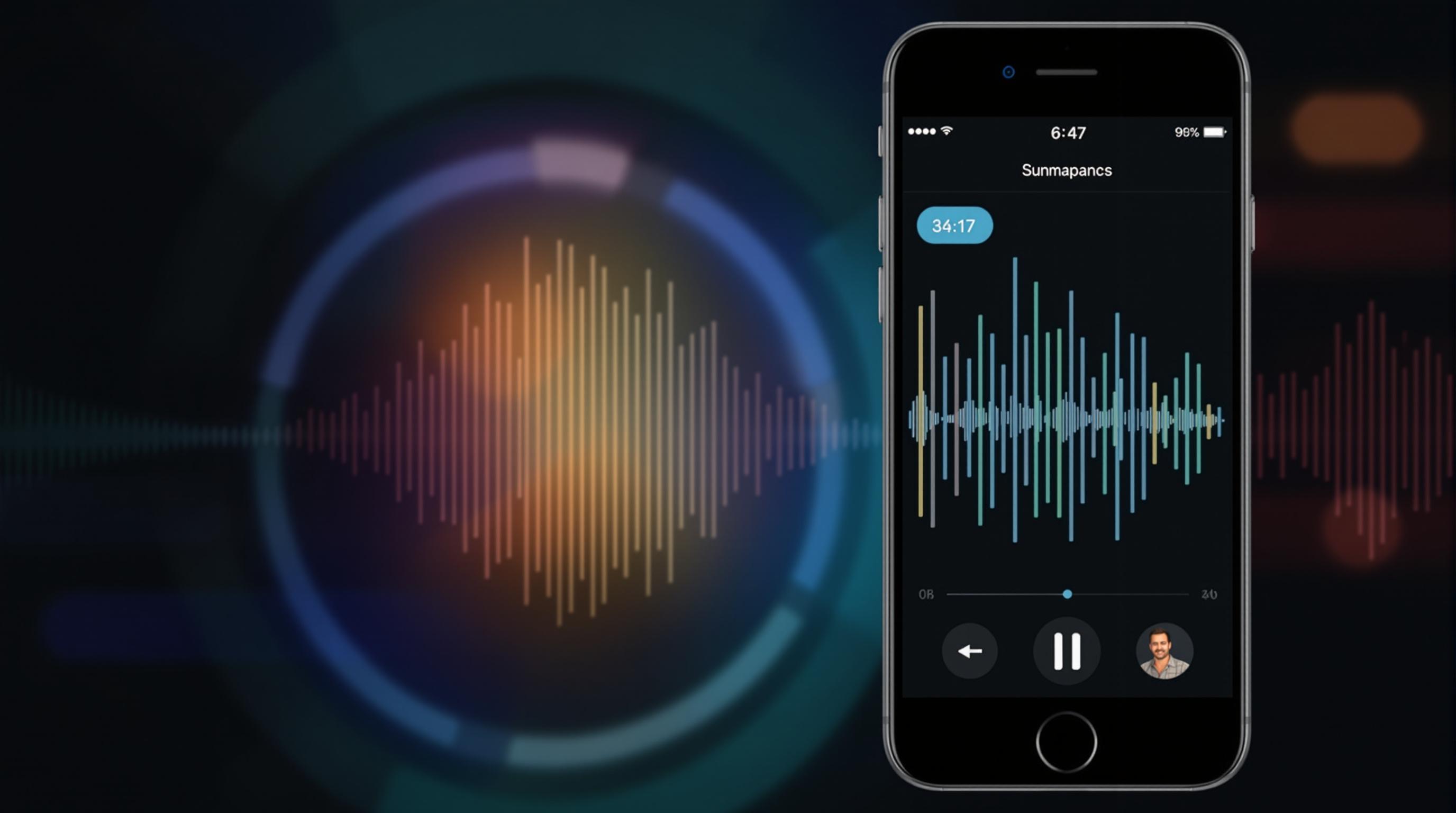Related Articles
- Top 6 Little-Known Medical Apps with User Interfaces That Actually Boost Patient Outcomes
- 5 Game-Changing Fitness Trackers from the Last 5 Years That Outperform Your Expectations
- Top 8 Breakthrough Portable Diagnostic Devices from the Past Five Years Revolutionizing Home Health Testing
- The Quiet Influence of Ancient Medical Records on Modern Healthcare Data Interpretation and Policy Making
- Top 6 Emerging Medical Coding Analytics Platforms from the Last Five Years for Data-Driven Decision Making
- Examining the Impact of Quantum Computing on Future Remote Healthcare Data Defense Strategies
Top 6 Little-Known Medical Apps with User Interfaces That Actually Boost Patient Outcomes
Top 6 Little-Known Medical Apps with User Interfaces That Actually Boost Patient Outcomes
The digital revolution in healthcare is more than just a buzzword—it’s transforming patient outcomes through innovative medical apps with user interfaces designed to empower and engage. Here are six lesser-known apps whose thoughtful design not only enhances usability but directly contributes to improved health results.
From Confusion to Clarity: How Ada Simplifies Symptom Analysis
Imagine being able to get a comprehensive symptom analysis without the intimidating medical jargon or complicated navigation. Ada, an AI-powered symptom checker, leverages a clean, intuitive interface that personalizes questions based on user responses, making it remarkably accessible. According to a 2021 study in the Journal of Medical Internet Research, users reported a 60% increase in understanding their symptoms after interacting with Ada’s interface.
My personal teen years were full of curious health questions that Google rarely answered well, often leading to anxiety and misinformation. Ada’s approach would have been a game changer back then!
Case Study: Chronic Disease Management Meets User-Friendliness with MySugr
For people managing diabetes, logging daily blood sugar levels can feel tedious. Enter MySugr, an app that makes this task engaging via gamification and clear visuals. Users who consistently employed MySugr’s straightforward UI saw a 0.5% reduction in HbA1c levels over six months, as per research published by the Diabetes Technology Society.
Designed for patients ranging from teens to seniors, MySugr tailors its reminders and feedback to individual needs, helping turn a mundane routine into an empowering habit.
A Light-hearted Look: Medisafe's Clever Approach to Medication Adherence
We all forget to take a pill now and then—some more than others! Medisafe spices up the experience with a fun, user-friendly interface featuring avatar characters that remind you to take medications. It’s no surprise that over 120,000 users reported improved adherence rates after switching from traditional reminder methods.
One user shared, “I never thought an app could make me laugh while managing complex medication schedules, but Medisafe nailed it.” Sometimes, a dash of humor is the best medicine.
Why User Interface Matters: The Psychological Impact on Patient Outcomes
The most groundbreaking algorithms mean little without an accessible interface. According to the Nielsen Norman Group, usability issues contribute to a 70% drop-off rate in health app engagement within a month. That’s why developers of these six apps prioritized simplicity, clear navigation, and empathy-driven design—elements that translate directly into better adherence, reduced anxiety, and enhanced patient empowerment.
The Silent Savior: TherapyChat for Mental Health Support
TherapyChat offers anonymous, peer-to-peer mental health support through a minimalistic chat interface that feels less clinical and more like texting a close friend. Its calming design reduces barriers to seeking help, crucial for younger populations wary of stigma.
Data from the app's first year showed a 35% increase in users seeking professional help after initial peer conversations, suggesting the UI fostered trust and safety.
The Unseen Hero of Post-Operative Care: SurgiTrack
Post-surgical complications can be minimized through meticulous monitoring—a process SurgiTrack optimizes via color-coded alerts and step-by-step recovery instructions. Patients with early-stage breast cancer who used SurgiTrack reported a 25% faster recognition of complications, resulting in timely interventions.
Its interface caters to older adults by employing large buttons, voice commands, and visual aids, ensuring patients aren’t overwhelmed during vulnerable recovery phases.
Tech Meets Empathy: Design Lessons That Save Lives
One critical insight from successful medical apps is the fusion of technical functionality with empathetic design. As a 56-year-old health advocate, I often notice that simplicity coupled with sensitivity can transform a stressful experience into one where patients feel seen and supported. This is the subtle art these apps master.
For example, MySugr’s use of friendly icons and goal tracking reassures patients that they’re making progress, even when numbers fluctuate. Similarly, Ada’s conversational question style mimics empathetic doctors, reducing anxiety while guiding users toward actionable insights.
Statistics Speak: Engagement Leads to Outcomes
Engagement isn’t just vanity; it’s a predictor of clinical success. Research from the Pew Research Center in 2023 revealed that health app users with daily engagement were 40% more likely to adhere to prescribed treatment plans. This clearly shows that thoughtful UI design contributes substantially to better recovery and wellness.
A Quick Tour Through the Remaining Gems
1. NightLight: Tailored for sleep disorder patients, NightLight uses calming colors and interactive sleep logs, helping users identify patterns that disrupt rest, improving sleep quality by 30% within three months.
2. CardioMate: A heart-monitoring app with an uncluttered dashboard and real-time visual feedback, CardioMate empowers users to track their heart health intuitively, contributing to reduced ER visits among elderly patients.
Wrapping It Up: Why These Apps Matter for Every Patient
Whether you’re 16 or 70, navigating health challenges is easier when technology listens and adapts to your needs. These six apps demonstrate that well-crafted user interfaces are not an optional luxury—they’re essential for transforming data into meaningful action and, ultimately, better health outcomes. It’s time more patients got to experience the blend of innovation, empathy, and usability these apps bring.




